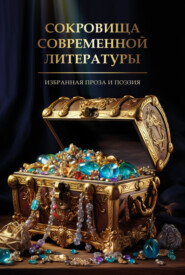По всем вопросам обращайтесь на: info@litportal.ru
(©) 2003-2024.
✖
Английский шутя. Английские и американские анекдоты для начального чтения
Настройки чтения
Размер шрифта
Высота строк
Поля
“Gee, that's tough,” he replied.
“Then in September,” the friend continued, “My father died, leaving me $90,000.”
“Wow. Two parents gone in two months. No wonder you're depressed.”
“And last month my aunt died, and left me $15,000.”
“Three close family members lost in three months? How sad.”
“Then this month,” continued the friend, “absolutely nothing!”
• You look terrible. What's the problem?
• Gee, that's tough!
• No wonder you're depressed.
8. The patient shook his doctor's hand in gratitude (пациент пожал руку доктора с благодарностью; to shake-shook-shaken – трясти) and said (и сказал), “Since we are the best of friends (так как мы лучшие друзья), I would not insult you by offering payment (я не буду обижать вас, предлагая плату). But I would like you to know that I have mentioned you in my will (но я хочу, чтобы вы знали, что я упомянул вас в своем завещании).”
“That is very kind of you (это очень мило с вашей стороны),” said the doctor emotionally (взволнованно = растроганным голосом), and then added (добавил), “Can I see that prescription I just gave you (можно я посмотрю тот рецепт, что я вам дал только что; to give-gave-given)? I'd like to make a little change (я бы хотел сделать небольшое изменение)…”
patient ['pe??(?)nt], gratitude ['?r?t?tju:d], since [s?ns], mentioned ['men?(?)nd], emotionally [?'m???(?)n(?)l?], prescription [pr?s'kr?p?(?)n]
The patient shook his doctor's hand in gratitude and said, “Since we are the best of friends, I would not insult you by offering payment. But I would like you to know that I have mentioned you in my will.”
“That is very kind of you,” said the doctor emotionally, and then added, “Can I see that prescription I just gave you? I'd like to make a little change…”
• That is very kind of you.
9. The man told his doctor that he wasn't able to do (человек сказал своему врачу, что он не может делать; to tell) all the things around the house that he used to do (все вещи по дому, которые он раньше делал: «имел обыкновение делать»). When the examination was complete (когда осмотр был завершен), he said, “Now, Doc, I can take it (ну, док, я справлюсь с этим: «я могу взять это»). Tell me in plain English what is wrong with me (скажите мне на ясном английском = открыто, что со мной не так; plain – ясный, понятный; простой; ровный /о местности/; равнина).”
“Well, in plain English,” the doctor replied, “you're just lazy (вы просто ленивый).”
“Okay,” said the man. “Now give me the medical term so I can tell my wife (теперь назовите мне медицинский термин, чтобы я мог сказать моей жене).”
used [ju:zd], examination [??,z?m?'ne??(?)n], complete [k?m'pli:t], replied [r?'pla?d], medical ['med?k(?)l]
The man told his doctor that he wasn't able to do all the things around the house that he used to do. When the examination was complete, he said, “Now, Doc, I can take it. Tell me in plain English what is wrong with me.”
“Well, in plain English,” the doctor replied, “you're just lazy.”
“Okay,” said the man. “Now give me the medical term so I can tell my wife.”
• Now, Doc, I can take it.
• What is wrong with me?
• You're just lazy.
10. As the doctor completed an examination of the patient (когда доктор закончил осмотр пациента), he said (он сказал), “I can't find a cause for your complaint (я не могу найти причину вашей жалобы). Frankly (откровенно /говоря/), I think it's due to drinking (я думаю, это из-за выпивания; due – должный, обязанный; ожидаемый).”
“In that case (в таком случае),” said the patient, “I'll come back when you're sober (я вернусь, когда вы будете трезвым = когда протрезвеете).”
find [fa?nd], cause [k?:z], complaint [k?m'ple?nt]
As the doctor completed an examination of the patient, he said, “I can't find a cause for your complaint. Frankly, I think it's due to drinking.”
“In that case,” said the patient, “I'll come back when you're sober.”
• Frankly, I think it's due to drinking.
11. A patient came to his dentist (пациент пришел к своему дантисту) with problems with his teeth (с проблемами с зубами).
Patient: Doctor, I have yellow teeth (у меня желтые зубы), what do I do (что мне делать)?
Dentist: Wear a brown tie (носите коричневый галстук)!
problems ['pr?bl?mz], teeth [ti:?], wear [we?]
A patient came to his dentist with problems with his teeth.
Patient: Doctor, I have yellow teeth, what do I do?
Dentist: Wear a brown tie!
• What do I do?
12. Patient: My hair keeps falling out (мои волосы продолжают выпадать). What can you give me (что вы можете мне дать) to keep it in (чтобы сохранить их)?
Doctor: A shoebox (коробку от ботинок).
hair [he?], shoebox ['?u:,b?ks]
Patient: My hair keeps falling out. What can you give me to keep it in?
Doctor: A shoebox.
• My hair keeps falling out.
13. Doctor: What seems to be the trouble (что представляется проблемой)?
Patient: Doctor, I keep getting the feeling (доктор, у меня постоянно такое чувство: «я продолжаю получать чувство») that nobody can hear what I say (что никто не слышит, что я говорю).
Doctor: What seems to be the trouble?
trouble ['tr?bl], hear [h??]
Doctor: What seems to be the trouble?
“Then in September,” the friend continued, “My father died, leaving me $90,000.”
“Wow. Two parents gone in two months. No wonder you're depressed.”
“And last month my aunt died, and left me $15,000.”
“Three close family members lost in three months? How sad.”
“Then this month,” continued the friend, “absolutely nothing!”
• You look terrible. What's the problem?
• Gee, that's tough!
• No wonder you're depressed.
8. The patient shook his doctor's hand in gratitude (пациент пожал руку доктора с благодарностью; to shake-shook-shaken – трясти) and said (и сказал), “Since we are the best of friends (так как мы лучшие друзья), I would not insult you by offering payment (я не буду обижать вас, предлагая плату). But I would like you to know that I have mentioned you in my will (но я хочу, чтобы вы знали, что я упомянул вас в своем завещании).”
“That is very kind of you (это очень мило с вашей стороны),” said the doctor emotionally (взволнованно = растроганным голосом), and then added (добавил), “Can I see that prescription I just gave you (можно я посмотрю тот рецепт, что я вам дал только что; to give-gave-given)? I'd like to make a little change (я бы хотел сделать небольшое изменение)…”
patient ['pe??(?)nt], gratitude ['?r?t?tju:d], since [s?ns], mentioned ['men?(?)nd], emotionally [?'m???(?)n(?)l?], prescription [pr?s'kr?p?(?)n]
The patient shook his doctor's hand in gratitude and said, “Since we are the best of friends, I would not insult you by offering payment. But I would like you to know that I have mentioned you in my will.”
“That is very kind of you,” said the doctor emotionally, and then added, “Can I see that prescription I just gave you? I'd like to make a little change…”
• That is very kind of you.
9. The man told his doctor that he wasn't able to do (человек сказал своему врачу, что он не может делать; to tell) all the things around the house that he used to do (все вещи по дому, которые он раньше делал: «имел обыкновение делать»). When the examination was complete (когда осмотр был завершен), he said, “Now, Doc, I can take it (ну, док, я справлюсь с этим: «я могу взять это»). Tell me in plain English what is wrong with me (скажите мне на ясном английском = открыто, что со мной не так; plain – ясный, понятный; простой; ровный /о местности/; равнина).”
“Well, in plain English,” the doctor replied, “you're just lazy (вы просто ленивый).”
“Okay,” said the man. “Now give me the medical term so I can tell my wife (теперь назовите мне медицинский термин, чтобы я мог сказать моей жене).”
used [ju:zd], examination [??,z?m?'ne??(?)n], complete [k?m'pli:t], replied [r?'pla?d], medical ['med?k(?)l]
The man told his doctor that he wasn't able to do all the things around the house that he used to do. When the examination was complete, he said, “Now, Doc, I can take it. Tell me in plain English what is wrong with me.”
“Well, in plain English,” the doctor replied, “you're just lazy.”
“Okay,” said the man. “Now give me the medical term so I can tell my wife.”
• Now, Doc, I can take it.
• What is wrong with me?
• You're just lazy.
10. As the doctor completed an examination of the patient (когда доктор закончил осмотр пациента), he said (он сказал), “I can't find a cause for your complaint (я не могу найти причину вашей жалобы). Frankly (откровенно /говоря/), I think it's due to drinking (я думаю, это из-за выпивания; due – должный, обязанный; ожидаемый).”
“In that case (в таком случае),” said the patient, “I'll come back when you're sober (я вернусь, когда вы будете трезвым = когда протрезвеете).”
find [fa?nd], cause [k?:z], complaint [k?m'ple?nt]
As the doctor completed an examination of the patient, he said, “I can't find a cause for your complaint. Frankly, I think it's due to drinking.”
“In that case,” said the patient, “I'll come back when you're sober.”
• Frankly, I think it's due to drinking.
11. A patient came to his dentist (пациент пришел к своему дантисту) with problems with his teeth (с проблемами с зубами).
Patient: Doctor, I have yellow teeth (у меня желтые зубы), what do I do (что мне делать)?
Dentist: Wear a brown tie (носите коричневый галстук)!
problems ['pr?bl?mz], teeth [ti:?], wear [we?]
A patient came to his dentist with problems with his teeth.
Patient: Doctor, I have yellow teeth, what do I do?
Dentist: Wear a brown tie!
• What do I do?
12. Patient: My hair keeps falling out (мои волосы продолжают выпадать). What can you give me (что вы можете мне дать) to keep it in (чтобы сохранить их)?
Doctor: A shoebox (коробку от ботинок).
hair [he?], shoebox ['?u:,b?ks]
Patient: My hair keeps falling out. What can you give me to keep it in?
Doctor: A shoebox.
• My hair keeps falling out.
13. Doctor: What seems to be the trouble (что представляется проблемой)?
Patient: Doctor, I keep getting the feeling (доктор, у меня постоянно такое чувство: «я продолжаю получать чувство») that nobody can hear what I say (что никто не слышит, что я говорю).
Doctor: What seems to be the trouble?
trouble ['tr?bl], hear [h??]
Doctor: What seems to be the trouble?

















